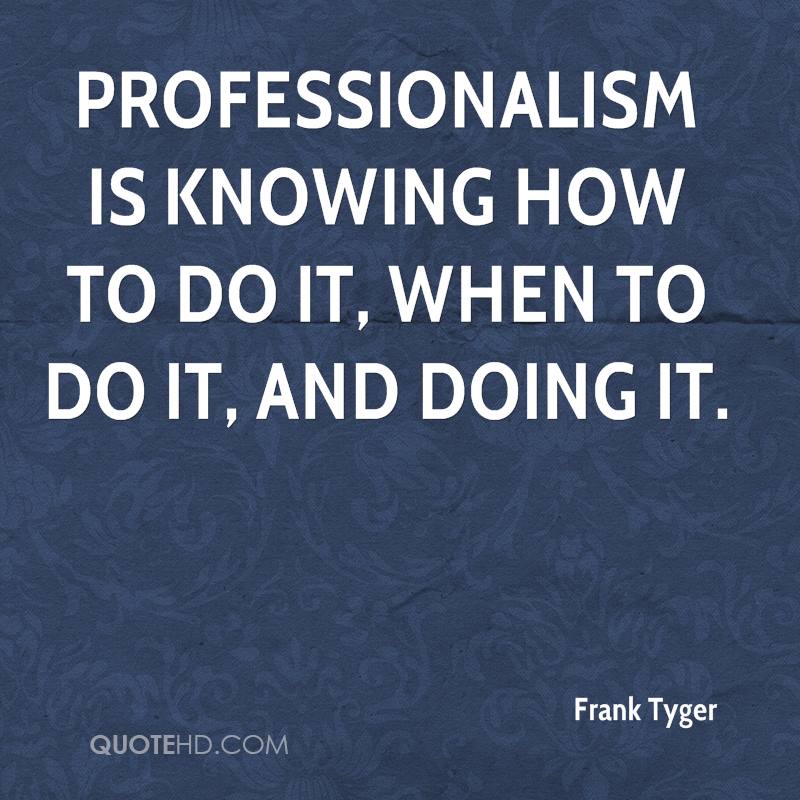Professionalism
pro·fes·sion·al·ism
prəˈfeSHənlˌizəm


noun
“Professionalism is someone’s inherent ability to do what is expected of them and deliver quality work because they are driven to do so.” Professionalism also encompasses the way an employee interacts with other people, including coworkers, customers and supervisors. Professionalism is the conduct, behavior and attitude of someone in a work or business environment. A person doesn’t have to work in a specific profession to demonstrate the important qualities and characteristics of a professional. Professionalism includes a variety of personal qualities and behaviors that demonstrate commitment to effective performance in a given job. Commitment and confidence, responsibility and dependability, honesty and ethics, and appearance and professional presence are central professional characteristics. The Merriam-Webster dictionary defines professionalism as 'the conduct, aims, or qualities that characterize or mark a profession or a professional person'; and it defines a profession as 'a calling requiring specialized knowledge and often long and intensive academic preparation.'
1 day ago Professionalism in government was missing under President Donald Trump, and it’s been missed. Its return won’t automatically deliver sound policy, but it’s likely to clear out some policy.
- the competence or skill expected of a professional. “the key to quality and efficiency is professionalism”

- the practicing of an activity, especially a sport, by professional rather than amateur players.
To you, professionalism may mean how you or your colleagues dress, the image you/they portray or the perception that you/they convey. It may be the essence in which you communicate vocally, verbally, or nonverbally. How do you balance the development of relationships and maintaining a professionalism culture at the same time?
This month we will cover all of these topics and much more as we work to develop our professional culture at Headway while maintaining a fun, exciting and innovative atmosphere that is so iconic of Headway.
I think that everyone can agree with the www.dol.gov statement that “Employers want new workers to be responsible, ethical, and team-oriented, and to possess strong communication, interpersonal, and problem-solving skills. Wrap these skills up together and you’ve got professionalism.”
Professionalism is a complex combination of knowledge, skills, abilities, and perception that everyone (and every has an opportunity to work on. Most importantly, it is directly correlated to an organizations culture. Take a minute to think about the culture here at Headway Workforce Solutions.
Professionalism Examples
Take another minute to think about other organizations that you have worked at. Does professionalism (or lack thereof) improve the morale of the employees? Does it make people more or less productive? Does it make the organization more or less collaborative or innovative?
Think about what professionalism means to you and reflect on what you do to maintain that level that you bring to the organization on a day-to-day basis. Think about what you can do to become more professional as well as what you can do to make your core teamwork more professionally.
Professionalism Skills
-Alex Smith, Account Manager

